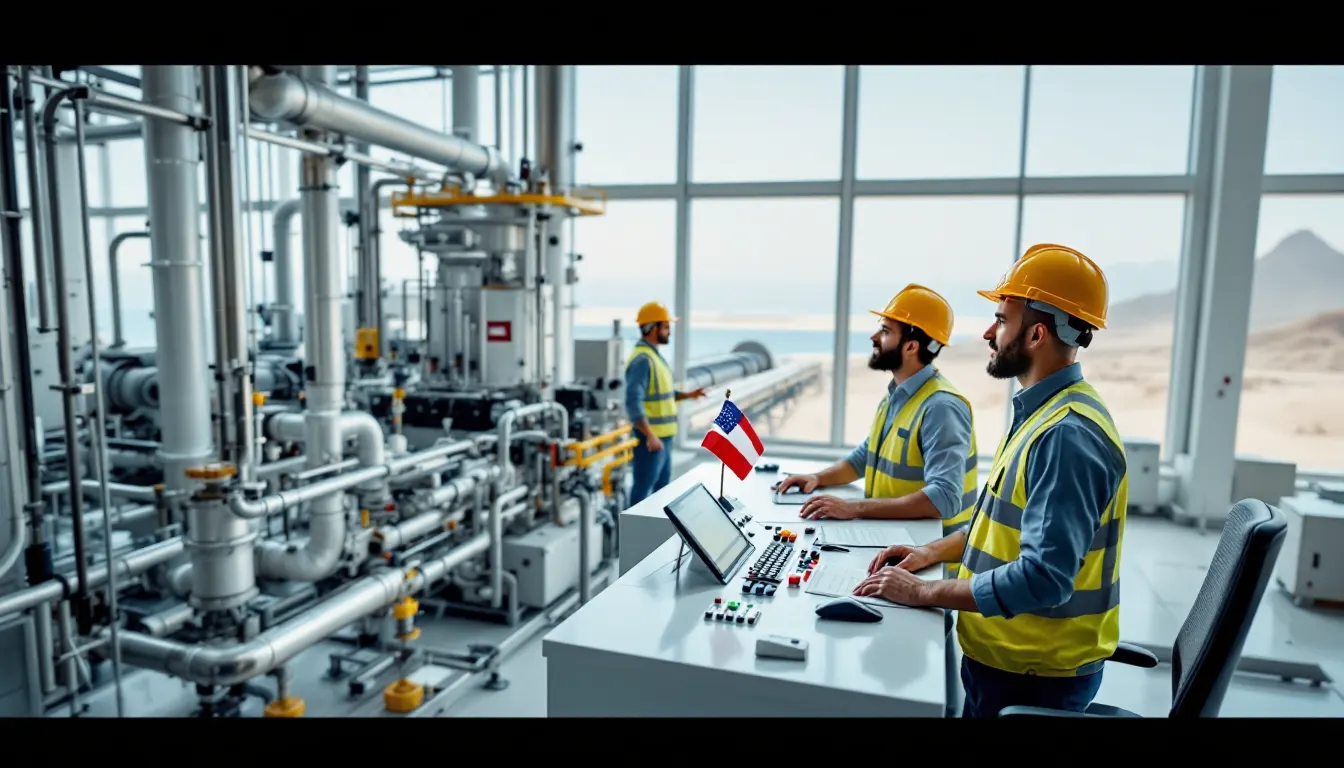Why Saudi Arabia’s Rare Earths Deal Repositions Global Supply Leverage

Saudi Arabia is rewriting the global rare earths supply narrative by partnering with the US government and MP Materials to build and operate a new rare earths processing facility in the Gulf kingdom. Unlike traditional supply dominated by China, this move signals a shift toward diversified, geopolitically aligned sources.
The joint venture includes MP Materials holding a minority stake and is set within Saudi Arabia's strategic industrial expansion plans in 2025. But this isn’t just about facility construction—it’s a deliberate repositioning of supply chain constraints that have long favored incumbents.
Rare earths control underpins key technologies from defense to renewable energy. By anchoring processing capabilities in Saudi Arabia, the US gains leverage over supply reliability beyond mere purchase agreements. This facility’s design enables operational control without constant bilateral renegotiation.
“Geopolitical positioning of critical materials is the silent game-changer in industrial dominance.”
Challenging The Myth of Supply Concentration as an Unbreakable Constraint
Conventional wisdom frames rare earths supply as a capped resource tightly controlled by China. Many analysts see entering this market as a defensive move rather than a strategic leverage play.
However, building a processing plant in Saudi Arabia disrupts this assumption by shifting from marginalized participation to active supply chain orchestration. Unlike competitors who depend on existing refining hubs, this JV enables layered system control, reducing dependency on volatile actors.
Similar to how China’s export restrictions revealed vulnerabilities, Saudi Arabia turns geography and policy into a leverage advantage. This contrasts with companies chasing quick fixes versus reshaping market dynamics.
Operational Control as a Leverage Mechanism
The joint venture’s structure—MP Materials holds a minority stake while the US government maintains influence—embeds leverage in governance and operational systems rather than ownership alone.
This mechanism reduces negotiation costs and creates a stable platform for scaling. Compared to buying rare earths on the open market (subject to price and export controls), control over processing lets US policymakers mitigate supply shocks efficiently.
Competitors reliant on imports lack this operational layer, which requires years to develop infrastructure and partnerships. Joint ventures offer a middle ground unavailable to simple procurement deals.
Who Gains From This Reshaped Constraint?
This shift creates leverage for the US defense sector, tech manufacturers, and clean energy firms, which depend critically on rare earths. The facility acts as a systemic lever by stabilizing raw material flows.
Other resource-importing nations in the Gulf and beyond stand to emulate this pattern, adapting long-term supply resilience strategies. Geographic diversification aligned with political alliances forms a new constraint repositioning approach.
For operators, the lesson is clear: building control points in critical supply chains turns vulnerability into leverage, stacking advantage beyond basic access.
Related Tools & Resources
As supply chains become a critical competitive lever, manufacturing management solutions like MrPeasy can help small manufacturers gain greater visibility and control over production and inventory. Leveraging tools that streamline operations is essential for companies aiming to build resilient and geopolitically savvy supply networks, just as highlighted in the rare earths processing shift discussed here. Learn more about MrPeasy →
Full Transparency: Some links in this article are affiliate partnerships. If you find value in the tools we recommend and decide to try them, we may earn a commission at no extra cost to you. We only recommend tools that align with the strategic thinking we share here. Think of it as supporting independent business analysis while discovering leverage in your own operations.
Frequently Asked Questions
Why is Saudi Arabia's rare earths processing facility important for global supply chains?
Saudi Arabia's facility creates a new processing hub outside of China, diversifying and geopolitically aligning global rare earths supply. This shift reduces dependency on volatile actors and strengthens supply chain control for technology and defense sectors.
How does the joint venture structure between MP Materials and the US government create leverage?
With MP Materials holding a minority stake and the US government maintaining influence, governance and operational control embed leverage beyond mere ownership. This structure lowers negotiation costs and stabilizes supply without continual renegotiations.
What technologies rely heavily on rare earth elements processed in this facility?
Rare earths are critical for defense systems, renewable energy technologies, and various tech manufacturing applications. Control over processing capabilities ensures these sectors have reliable supply chains free from export restrictions.
How does this Saudi Arabia rare earths deal challenge China's dominance in the market?
The deal disrupts China's tight control by establishing alternate refining capabilities in Saudi Arabia. This creates a layered supply chain control system that reduces vulnerability exposed by China's export restrictions.
What advantages do joint ventures offer compared to simple procurement of rare earths?
Joint ventures provide operational control and governance influence, enabling partners to manage supply risks and scale efficiently. Unlike purchasing on the open market, joint ventures reduce susceptibility to price swings and export controls.
Why is geopolitical positioning of critical materials considered a game-changer in industrial dominance?
Controlling rare earth materials within politically aligned regions like Saudi Arabia shifts leverage in global technology supply chains. It enables stable operations without constant bilateral renegotiations, enhancing industrial and defense sector resilience.
How might other resource-importing nations benefit from this supply chain repositioning?
Other nations can emulate Saudi Arabia’s approach by diversifying supply sources aligned with political alliances. This strategy builds long-term resilience and reconstructs constraints into leverage points in their supply chains.
What role do manufacturing management tools like MrPeasy play in supply chain leverage?
Tools like MrPeasy help small manufacturers gain visibility and control over production and inventory, supporting resilient and geopolitically savvy supply chains. They streamline operations, enabling firms to respond to supply shifts such as Saudi Arabia’s rare earths processing venture.

